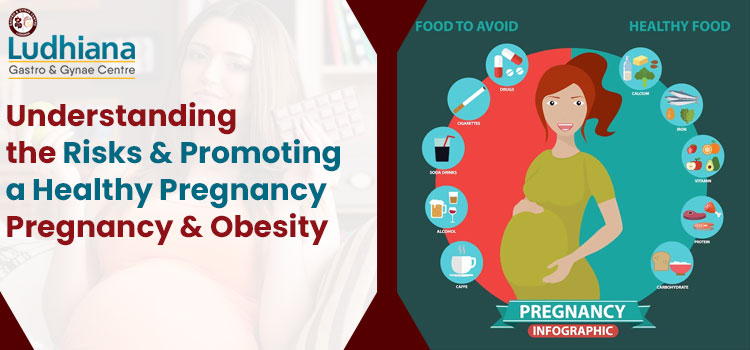Obesity is a global issue that affects both an individual’s general health and the health of a developing foetus during pregnancy. Understanding the dangers of pregnancy and obesity is crucial since more than 50% of women of reproductive age are overweight or obese. This article will go through the appropriate weight increase, the risks of having a high body mass index (BMI) during pregnancy, and how to have a healthy pregnancy and why should you connect with a Gynaecologist in Ludhiana and a Gastro Doctor in Ludhiana
What constitutes obesity when pregnant?
When a person’s BMI is 30 or over, they are regarded as obese. Multiplying your weight in pounds by your height in inches squared by 703 yields your BMI. Alternately, multiply your height in metres squared by your weight in kilogrammes. Pregnancy difficulties resulting from a high BMI might have an impact on both the mother and the foetus.
How can a high BMI affect pregnancy?
A high BMI during pregnancy raises the risk of a number of pregnancy problems, including:
- Miscarriage,
- Stillbirth
- recurrent miscarriage
- Gestational diabetes
- Preeclampsia
- Heart problems
- Sleep apnea
The need for a cesarean section and the risk of complications such as wound infections
Furthermore, having a high BMI during pregnancy has been related to an increased risk of a variety of health issues for the infant, including:
- Congenital conditions
- Being much larger at birth than the average (fetal macrosomia)
- Growth issues
- Asthma as a child
- Obesity in children is a growing problem.
- Cognitive difficulties and developmental delays
Understanding the possible complications with the help of a Gynaecologist in Ludhiana or a Gastro Doctor in Ludhiana can help one take the necessary steps to promote a healthy pregnancy.
How much weight should a pregnant woman put on?
The pre-pregnancy weight and BMI are key factors to take into account when figuring out how much weight to acquire throughout pregnancy. A healthcare professional may assist in figuring out what’s ideal for a certain person and managing their weight throughout pregnancy. A Gynecologist in Ludhiana could advise concentrating on preventing excessive weight gain during pregnancy rather than advising a certain quantity of weight growth.
If you have a BMI of 30 or above and are carrying one baby, the ideal weight gain for a single pregnancy is 11 to 20 pounds (approximately 5 to 9 kilogrammes). If a woman has a BMI of 30 or above and is carrying twins or multiples, the recommended weight gain is 25 to 42 pounds (11 to 19 kilograms).
Will one need specialized care during pregnancy?
If an individual has a BMI of 30 or higher, their healthcare provider will closely monitor their pregnancy. They might recommend early testing for gestational diabetes, fetal ultrasound changes, and obstructive sleep apnea screening. Regular prenatal visits can help healthcare providers monitor the mother’s and baby’s health.
What steps can one take to promote a healthy pregnancy?
One can limit the impact of having a high BMI on their health and their baby’s health by:
Scheduling a preconception appointment: If an individual has a BMI of 30 or higher and is considering getting pregnant, talking to their healthcare provider can help. The provider might recommend a daily prenatal vitamin and refer to other health care providers, such as a registered dietitian, who can help reach a healthy weight before conception.
Seeking regular prenatal care: Prenatal visits can help monitor the mother’s and baby’s health. Informing the provider about any medical conditions they have and discussing how to manage them is crucial.
Eating a healthy diet: Working with a health care provider or a registered dietitian to maintain a healthy diet and avoid excessive weight gain is important to maintaining good health. A healthy diet can help prevent chronic conditions like heart disease, type 2 diabetes, and cancer. It can also help manage health conditions such as high blood pressure and cholesterol.
Working with a healthcare provider or a registered dietitian can help you develop a personalized nutrition plan tailored to your unique needs, preferences, and health goals. They can help you identify foods that are nutrient-rich and low in calories while also helping you avoid foods high in saturated and trans fats, added sugars, and sodium.


